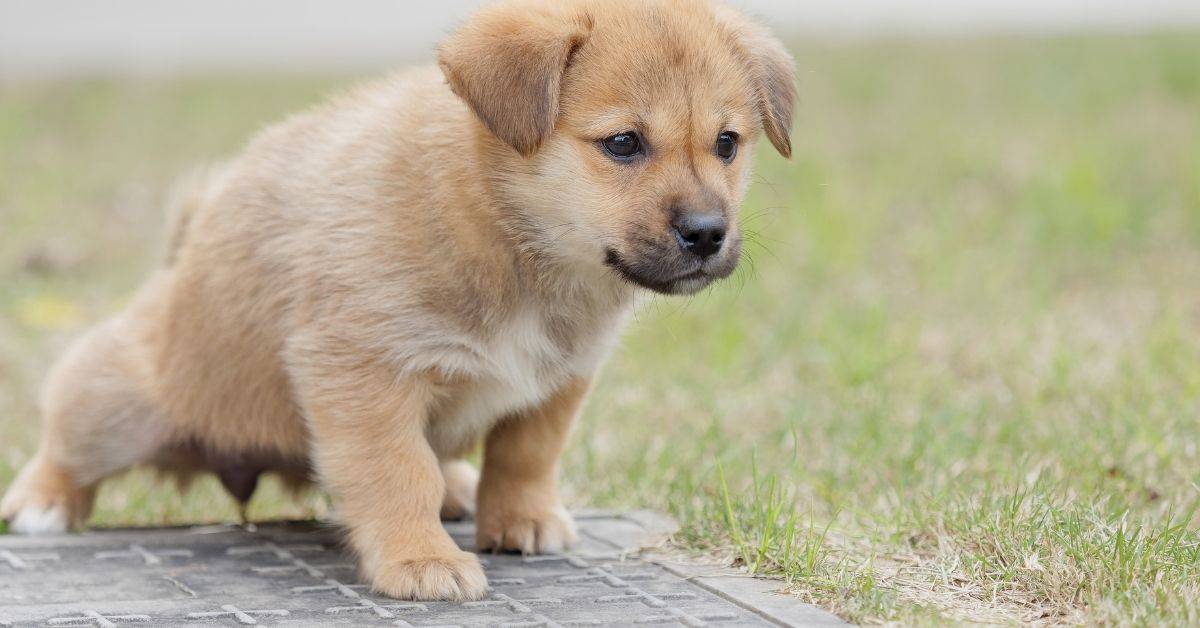Puppies are a source of nearly inexpressible pleasure to dog owners, but they may be a lot of work for the first few months.
Your puppy will consume an absurd amount of your time and energy; cleaning up a puddle on the kitchen floor (if you’re lucky; some dogs prefer to sprinkle on the carpet) is an everyday chore for a new puppy owner.
To catch your dog before he lifts a leg, you’ll need to be as watchful as a mother hen as you try to decode his sniffing activity.
The simple answer to “Why does my puppy pee so much?” is small bladders.
Puppy bladders are pretty small; the younger the puppy, the more often it needs to pass pee.
The number of hours a puppy can retain its urine is roughly proportional to its age in months.
As such, a puppy of one month’s age can hold its urine for approximately an hour; however, a puppy of 6 months can generally hold its own for up to 6 hours.
Smaller dogs, such as toy breed puppies, won’t be able to contain their urine for as long as their larger counterparts will at the same age.
It would be best if you didn’t disregard this as normal behavior, which should act as a warning.
As you know now the answer to the question “how much is too much when it comes to puppy peeing”, continue reading to get more information.
How Much Is Too Much When It Comes To Puppy Peeing
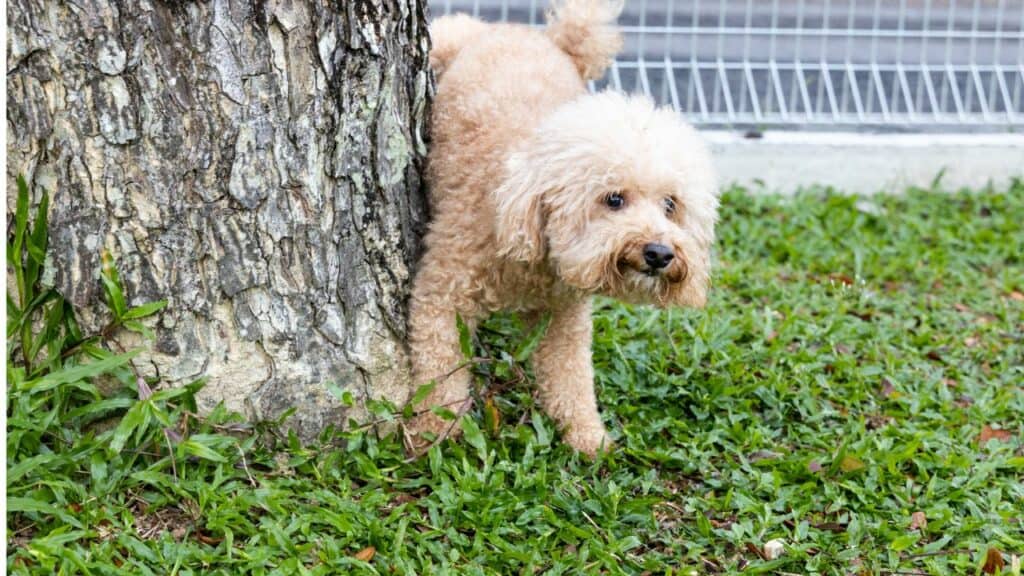
Adult dogs have excellent bladder control; because many people only do three bathroom breaks daily, they spend an average of eight hours between outings.
Most puppies pee significantly more frequently since their bladders are smaller, and their bladder control is less developed.
Your adult dog may not realize how long he has been inside when he urinates there immediately after being outdoors.
An adult dog, for instance, may drink all of his water before crashing on the couch for the night, only to go outside in the morning.
By the time he kisses you into consciousness at 6 a.m., he may have to go badly, but he can hold it until morning.
In contrast, most pups must go to the bathroom within ten to thirty minutes of drinking a full glass of water.
Most puppies under six months old need to go outside every hour and a half.
Up to roughly nine months of age, the veterinarians recommend waiting the same number of hours as the puppy’s age in months.
Thus, a 1-month-old puppy will have to go out and relieve himself once every hour, while a 5-month-old dog will have to do so once every five hours.
Something is amiss if your 5-month-old puppy needs a rest every hour or two, and you should talk to your vet or dog trainer about it.
Your veterinarian is an excellent resource for solving physical issues, but if your dog is otherwise healthy, the cause is often behavioral.
If you want things to improve, you’ll have to fix these issues (potentially with the help of a trainer or behaviorist).
Peeing a lot when excited You may find that your puppy pees more than expected because they are excited.
How Often Do Puppies Pee?
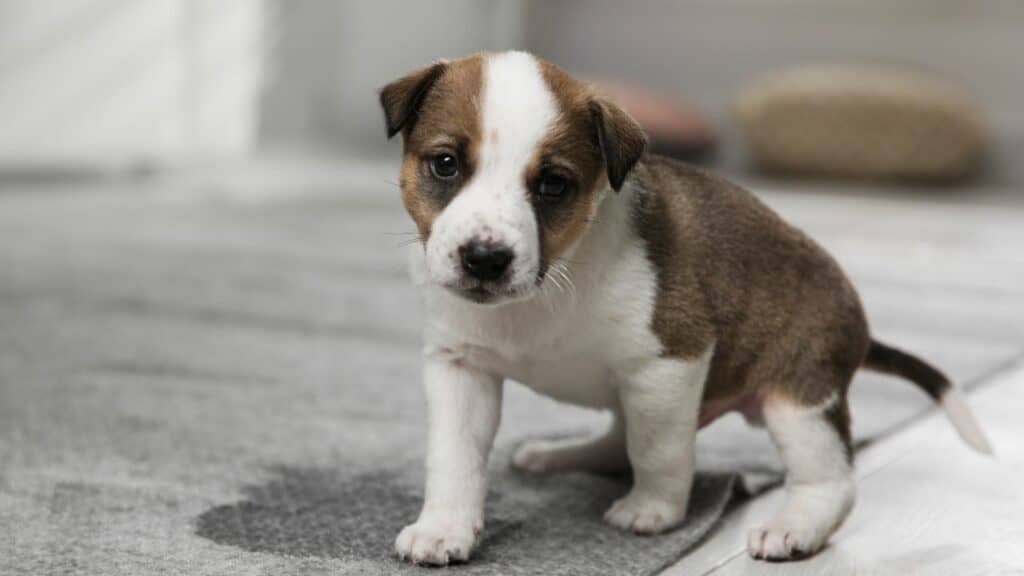
A puppy’s bladder control should allow it to hold out for a time equal to its age in months.
A young puppy of 2 months can make it for 1-2 hours, whereas a puppy of 6 months can make it for 6-7 hours.
An adult dog should only be expected to hold its bladder for 6-8 hours, as asking them to do so is cruel and can cause issues even for dogs that are well housebroken and refuse to use the bathroom inside unless essential.
This rule of thumb can also be considered average since some puppies can go much longer than this when they’re sleeping or otherwise sedentary.
If a puppy hasn’t been playing, eating, drinking, or waking up from a nap, it should be able to contain its urine for longer.
To begin potty training, you usually set a timer to go outside with your dog every 30 minutes to an hour.
Once you learn your puppy’s routine and recognize the signs that they have to go outside because they have full bladders, you will be able to increase the duration between frequent potty breaks gradually.
Medical Causes For Peeing Too Much
If your puppy suddenly starts more frequent potty breaks than usual or seems to pee frequently, more severe medical conditions may be at play.
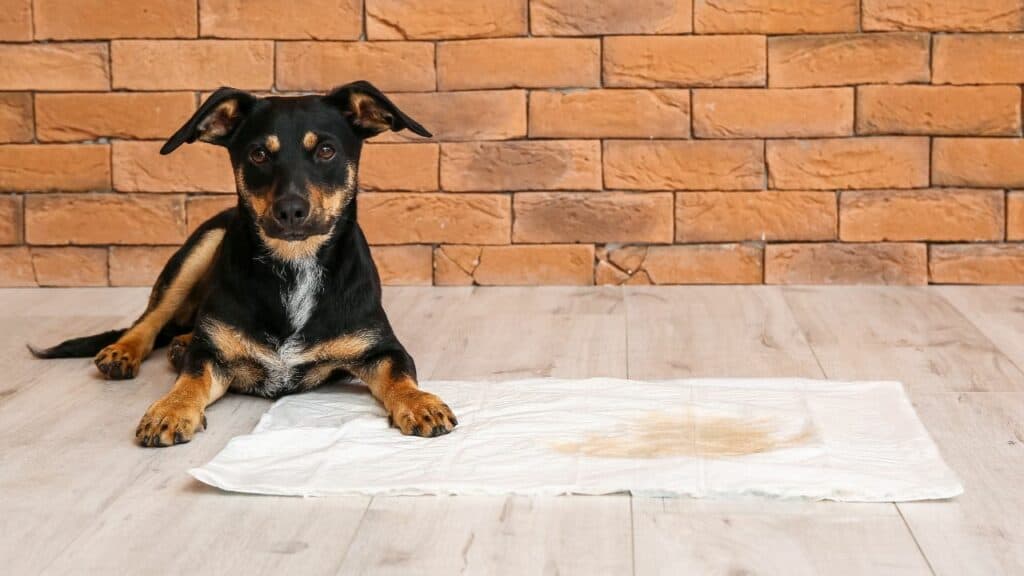
Urinary tract infections (UTIs), ectopic ureters (a urinary system birth abnormality), and metabolic illnesses like diabetes are a few conditions that can lead to excessive urine.
How to tell if your puppy is peeing is typically shown below.
Diabetes
Canine diabetes is a condition in which the body either grows resistant to the insulin generated by the pancreas, or the pancreas is unable to produce enough insulin, the hormone needed to digest glucose or blood sugar.
In either scenario, high blood sugar is the result, which causes a dog’s kidneys to excrete water, prompting the puppy to urinate.
One of the typical medical causes for a young dog urinating as they sleep is this.
In addition to frequent urination, excessive drinking is another prevalent symptom of diabetes.
Diabetes is frequently a congenital condition that can affect young puppies, and this is potentially life-threatening.
Diabetes can be well treated, but it cannot be cured.
Incontinence is also a possibility for older dogs to pee frequently.
You should always visit a veterinarian if you think your dog might have diabetes.
You might also have to move your dog to a diabetic dog diet.
Bladder Infections
Insufficient urine drainage, a compromised immune system, or any other factor can allow germs to enter your dog’s bladder and create an infection.
Excessive urination, frequent urinary accidents in the house, pain or burning when urinating, and blood in the urine are all symptoms of a bladder infection.
Kidney Infections
Most kidney infections are brought on by bacteria that pass via the bladder and reach the kidneys.
Vomiting, increased thirst and urination, not eating, stomach pain, and fever are indications that you may have a kidney infection.
Urinary Tract Infections
Urinary tract infection can make puppy pee frequently and urgently like humans.
Although most urinary tract infections are easily treated, some specific bacterial strains are more challenging to eliminate than others.
A urine tract infection is a common cause of frequent peeing in puppies, particularly females.
Fortunately, checking a urine sample makes it simple to identify most bladder infections.
Be aware that specific puppies may develop vaginal opening-specific urinary tract infections.
Instead of using antibiotics in these situations, spaying or neutering is typically the most effective treatment.
Ectopic Ureters
Urine is transported from the kidneys to the bladder through tubes called ureters.
Ectopic ureters in puppies fail to connect correctly to the bladder, which can result in incontinence.
The inability to retain their bladders and urine trickling are the most typical symptoms of ectopic ureters in pups.
They may also lick their genital areas often; additionally, ectopic ureter-affected puppies are more vulnerable to UTIs.
Bladder Or Kidney Stones
Your dog may need to pee frequently if they have kidney or bladder stones.
Urine that contains blood and difficulty urinating are common symptoms as well.
If your puppy’s urinary system is completely blocked, he may not pass any urine or may only be able to give very little urine, which could be fatal.
Contact your veterinarian if you see your puppy attempting to urinate but not producing much urine.
Medications
Your puppy may need to urinate more regularly if you’re on certain medications, such as corticosteroids.
If your puppy receives medication, his frequent urinating should stop when he finishes.
Additionally, your veterinarian can inform you of any potential medication adverse effects.
Tumors
Although they are uncommon, brain or spinal tumors could put pressure on the nerves that connect your dog’s brain to its bladder, making it difficult for them to hold it.
For instance, some elderly dogs have Cushing’s Disease, even though it rarely affects puppies.
This condition is typically characterized by developing a benign (non-cancerous) brain tumor that presses against the pituitary gland.
The body’s hormone levels are consequently thrown off, which might result in frequent urination.
Behavioral Causes Of Puppy Frequent Urination
Once your veterinarian has determined that he is not afflicted with any medical ailments, it is time to focus on his issues’ emotional, mental, and behavioral problems.
If there are no medical issues in your young dog, then the dog’s behavior plays a vital role in the playful puppys’ frequent urination.
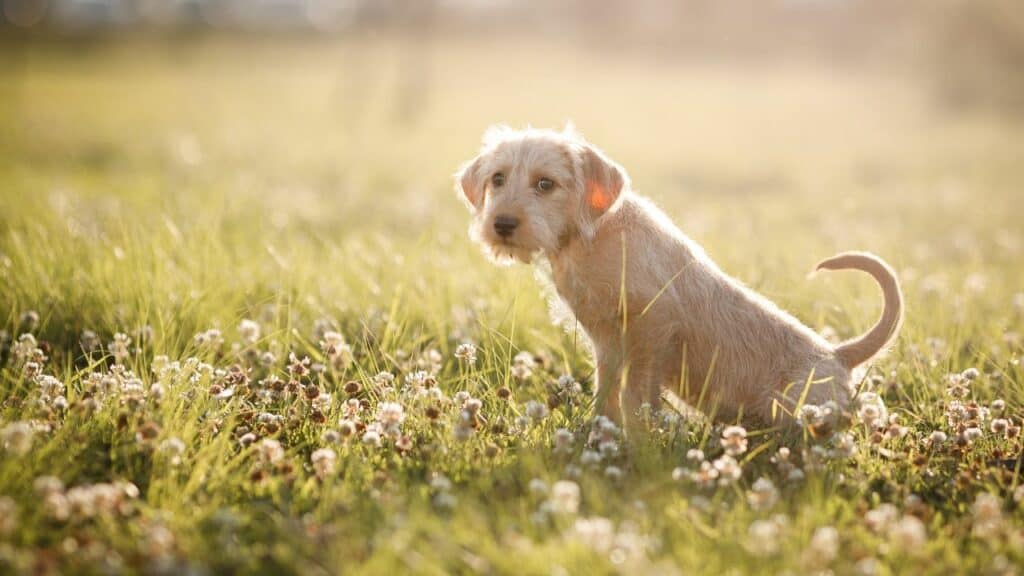
These are some of the most prevalent instances of these kinds of issues:
Attention-Seeking Behavior
Puppies who are not given enough stimulation occasionally may urinate in undesirable locations to get their person’s attention.
In the pup’s eyes, it is preferable to receive any attention.
However, the attention is frequently unfavorable.
Fortunately, treating this is one of the simplest ways to stop frequent urination.
Provide your dog with extra stimulus, activity, and attention!
Get up from the couch and take your dog for a walk or a game of fetch in the park.
Purchasing some dog puzzle toys or puppy-friendly teething toys may also be something you want to think about doing to keep your dog cognitively and physically occupied.
Anxiety Or Stress
Many older dogs urinate whenever they become anxious, especially jittery small toy breeds (no offense intended).
While this is undoubtedly preferable to a medically caused cause for excessive urination, it is frequently more challenging to treat.
More activity, mental stimulation, and socialization may benefit many situations.
Still, it may also be helpful to give high-strung older dogs an excellent “hiding location” where they may escape anytime they feel anxious.
One well-liked method for providing smaller breeds a warm, secure environment is by using dog cave beds.
These adult dogs frequently require the help of a qualified dog trainer to feel more secure and stop urinating everywhere.
Also, think about whether you could unintentionally be putting your dog through anxiety.
Your dog is starting to fear you if you’ve ever yelled at them and they’ve pooped on the floor.
There is no doubt in my mind that you do not want this to occur!
Try convincing your dog that you pose no harm and should not be scared.
To assist your dog form a favorable association with you, use toilet training methods that provide positive reinforcement.
Attention
Your puppy is peeing to obtain your attention and spend time with you as he will rapidly learn that you take him outside whenever he uses the restroom indoors.
Playing with your puppy and taking him on lots of walks can allow him to hang out with you without urinating all over the house, which is an excellent approach to stop this.
You might have noticed this if your puppy pees a little bit every time you come home because he’s happy to see you.
Too Much Water
Puppies need to use the restroom shortly after consuming water, so if you give him water all day, he could need to do so frequently.
However, suppose it appears that your puppy is consuming an excessive amount of water.
In that case, he may suffer from one of the mentioned conditions, such as diabetes or a kidney infection.
Improper Potty Training
I’ll rip the band-aid off: You might be the cause of your dog’s excessive urination.
It is your responsibility as the owner to assist your puppy in learning these abilities because puppies are incapable of knowing when they should and should not use the restroom.
The first stage is creating dependable, strict potty break training techniques, especially potty breaks.
That entails giving your dog plenty of attention and praise when he behaves well and taking him outside regularly (including whenever he drinks water).
Don’t forget to take your dog out frequently and as directed for potty breaks; this will help him develop positive future toilet habits.
How To Potty Training
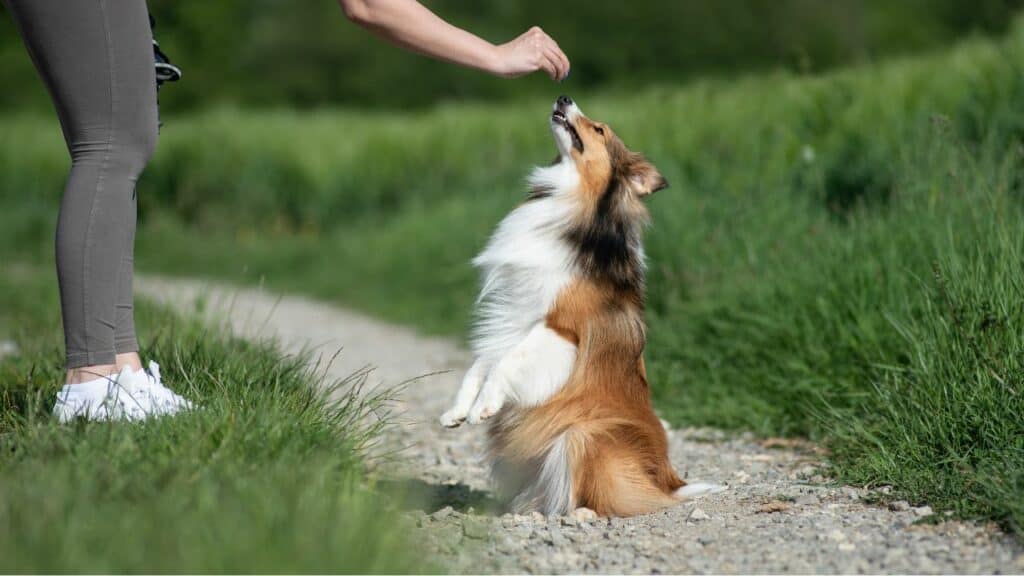
Here are some suggestions for potty training your puppy if he starts urinating more frequently:
Keep an eye out for indications that your puppy may need to go outside, such as circling or smelling the ground.
House-trained dog to stay in his kennel and stay there while you aren’t around.
When your dog urinates outside, reward him with treats and praise as it is the best house training.
You may teach a puppy to relieve himself on command by using a trigger word, such as “toilet,” right before he does.
A couple of hours before bedtime, stop feeding your puppy water.
Your puppy cannot control his involuntary submissive urination, so you shouldn’t punish him for it.
Puppies do need to go for bathroom breaks quite frequently.
However, consult your veterinarian if your puppy suddenly starts to go much more often than usual to check if there might be something else going on.
How To Deal With Your Puppy Peeing So Much
Depending on why your dog is urinating inside, you may need to adopt various ideas and techniques to make things better for everyone.
Your little tinkler might benefit from the following items to have improved bladder control:
Crate Training
One of the best ways to educate puppies on where to go potty and pee is through crate training.
The main principle is that whenever you can’t immediately oversee your puppy, you should keep them in a crate.
Puppies will typically hold it until you let them out since they are instinctually reluctant to urinate or poop close to where they sleep.
Of course, initially, you’ll need to let them out to use the restroom every hour or so, but with experience, you’ll be able to progressively increase the interval between visits.
If your dog has an occasional accident in his crate, make sure you properly clean it to remove any remaining odors that can encourage him to commit the same offense again.
Belly Bands And Diapers
If your tiny sprinkler is not urinating so frequently for medical problems, you may need to reduce your losses.
One of the easiest methods is using a diaper or a belly band for male adult dogs (for females).
Although these gadgets won’t stop puppy peeing, they will lessen the mess once they have.
These items often rely on an absorbent pad or liner for the inevitable accidents in the house.
Although you’ll need to wash the band and replace your pup’s place periodically, this is easier (and more hygienic) than keeping the floor clean.
DIY dog diapers are another option if you’re feeling crafty, but we predict that most people will want to buy a pack of puppy diapers and call it a day.
Lengthen Your Pup’s Potty Breaks
Consider extending your walks if your puppy tends to urinate right after you get home from your stroll (this can be especially helpful for pups with higher than average water intake).
Please give him a couple more chances to experience the urge to tinkle and fully empty his bladder.
That will assist if you use it with crate training, but you can also use it to let your dog roam the home.
Obliterate Odors
Adult dogs rely heavily on their noses when deciding where to go.
Who knows why they choose the locations they do, but they frequently prefer to visit a spot that has been seen before, and they do this by utilizing their sharp nose to sniff out even the tiniest remnants of previous excrement or urine.
Make careful to clean up any mishaps thoroughly, and I mean entirely.
Use a top-notch odor-neutralizer to remove the stench after you’ve absorbed the puddle.
That is crucial in cases where an accident happens on the carpet.
Clean it well, then clean it once or twice more until there is no longer any stench (even with your nose close to the ground).
You’ll need to go “above and beyond” because your dog’s nose is significantly more intense than yours is.
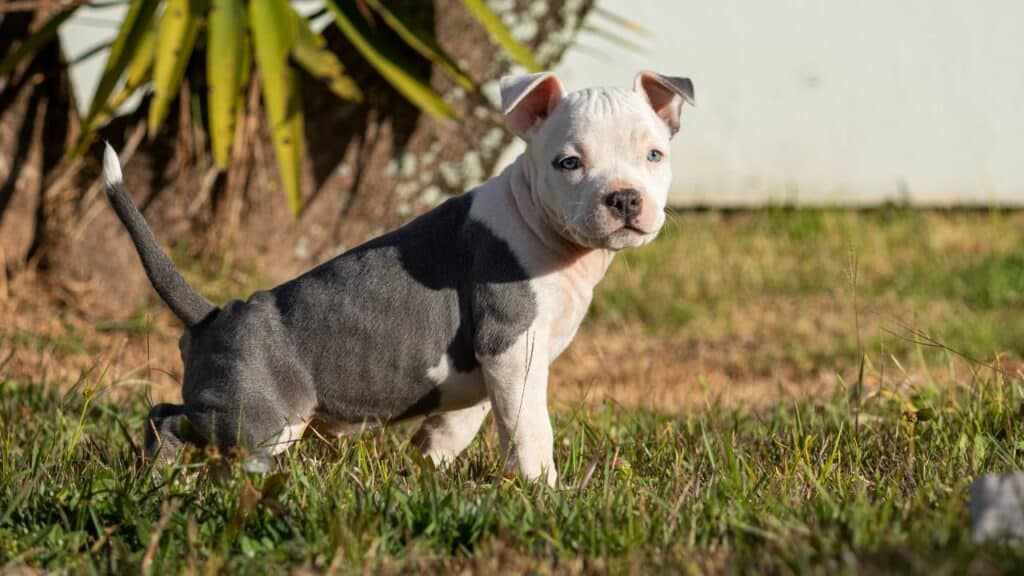
Although mental or health issues may cause your dog’s frequent urination, pups frequently still have growing bladder muscle control, making waiting to urinate more challenging than it would be for an older dog.
To improve their voiding behavior, young puppies may only require more potty training or encouragement.
The good news is that daily potty breaks will reduce as your puppy ages and becomes potty trained, making it less frustrating to have to take your puppy outside to urinate so frequently.
Being a part of your puppy’s growth and its increasing grasp of the world may be a powerful bonding experience for you and your dog, even though it may not always feel extraordinary.
Before you get frustrated with your puppy for urinating frequently, you must get them checked out by the veterinarian to ensure they are healthy and not suffering from an issue that could cause you to find dog pee in the house.
Before You Go…
Now you know the answer to the question, “Why does my puppy pee so much?”.
If you want to learn more, read the following articles too!

